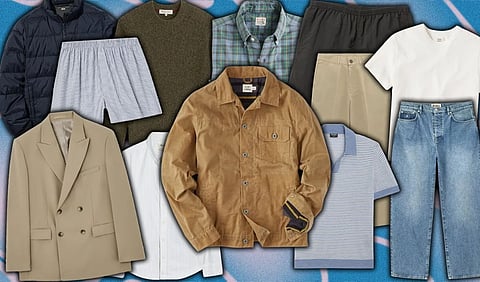

The overhaul of GST rates is set to rattle global fashion brands such as Zara, Levi Strauss and Lacoste because of the higher levies on apparel priced above Rs 2,500.
The premium wear segment makes up roughly 18% of India’s $70 billion apparel industry, fuelled by a rising cohort of affluent and brand-conscious young consumers.
Under the reforms, garments costing less than 2,500 rupees will attract a reduced 5% levy, but those priced above that threshold will now face 18%, up from 12%.
The move threatens to squeeze margins at companies including PVH Corp, Marks & Spencer, Gap, Under Armour, Nike, H&M and Uniqlo. Executives warn it could slow growth in a market where aspirational shoppers see branded apparel as a lifestyle upgrade but remain highly price-sensitive.
“Retail works on wafer-thin margins, and overheads like rents are extremely high,” said the India chief of a foreign garment brand, requesting anonymity over fears of government backlash. “The growth we were expecting won’t come now. The 2,500-rupee price point is basic, not luxury.”
The Clothing Manufacturers Association of India described the change as a potential “death knell” for the sector, noting that items priced above 2,500 rupees are widely bought by the middle class as well as wealthier consumers.
On Superdry India’s website, nearly all 875 new arrivals fall into the higher tax slab, with jackets listed above $170 and shirts at $60. Lacoste’s India website features men’s T-shirts priced as high as $99, none below the $29 threshold.
The reforms also create a stark contrast with cuts elsewhere. Taxes on daily essentials and electronics have been reduced, while SUVs received a surprise break: their levy dropped to 40% from as much as 50%. Carmaker Mercedes-Benz has already reported record sales in recent months.
For domestic producers, the blow is compounded by external shocks. Indian exporters—such as Arvind Ltd, which manufactures foreign brands for markets including the United States—are grappling with Donald Trump’s 50% tariff on garment imports. Arvind Fashions, which operates Tommy Hilfiger and Calvin Klein stores in India.
Foreign labels have been expanding rapidly in India, adding outlets and boosting online sales. Lululemon is set to debut in 2026, while the new rates will also apply to luxury houses such as Louis Vuitton, Dior and Versace.
Industry executives say India’s wealthy will absorb the 18% rate, but others may choose to buy tax-free during overseas trips. The sharper pinch, however, could be felt in the wedding market—one of India’s largest spending categories.
“Putting wedding clothes in the 18% slab will force parents to compromise on what they buy for their favourite child’s special day,” the association warned.